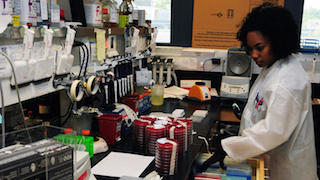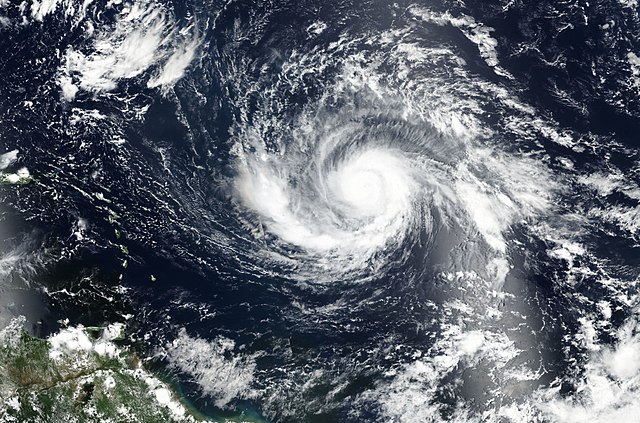Zika
See the following -
A 'Slow Catastrophe' Unfolds as the Golden Age of Antibiotics Comes to an End
 In early April, experts at a military lab outside Washington intensified their search for evidence that a dangerous new biological threat had penetrated the nation’s borders. They didn’t have to hunt long before they found it. On May 18, a team working at the Walter Reed Army Institute of Research here had its first look at a sample of the bacterium Escherichia coli, taken from a 49-year-old woman in Pennsylvania. She had a urinary tract infection with a disconcerting knack for surviving the assaults of antibiotic medications. Her sample was one of six from across the country delivered to the lab of microbiologist Patrick McGann...
In early April, experts at a military lab outside Washington intensified their search for evidence that a dangerous new biological threat had penetrated the nation’s borders. They didn’t have to hunt long before they found it. On May 18, a team working at the Walter Reed Army Institute of Research here had its first look at a sample of the bacterium Escherichia coli, taken from a 49-year-old woman in Pennsylvania. She had a urinary tract infection with a disconcerting knack for surviving the assaults of antibiotic medications. Her sample was one of six from across the country delivered to the lab of microbiologist Patrick McGann...
- Login to post comments
Hurricane Harvey: Responding to Public Health and Infectious Disease Threats
 The membership of the Infectious Diseases Society of America and the HIV Medicine Association stand with the individuals, families and communities affected by flooding in the aftermath of Hurricane Harvey, and urge care, preparation and precautions in confronting health impacts that may pose risks in the days and weeks ahead. We would like first to emphasize that while widespread disease outbreaks after flooding remain uncommon in the United States, hand hygiene, clean water, as well as access to medications will be essential for preventing and limiting the spread of infectious diseases during this time...
The membership of the Infectious Diseases Society of America and the HIV Medicine Association stand with the individuals, families and communities affected by flooding in the aftermath of Hurricane Harvey, and urge care, preparation and precautions in confronting health impacts that may pose risks in the days and weeks ahead. We would like first to emphasize that while widespread disease outbreaks after flooding remain uncommon in the United States, hand hygiene, clean water, as well as access to medications will be essential for preventing and limiting the spread of infectious diseases during this time...
- Login to post comments
Hurricanes Harvey and Irma Draw the Line - Time for the US to Embrace Open Source Emergency and Disaster Response
 For nearly 20 years now the global open source community and applications have been a keystone to disaster relief efforts around the world. The enormous number of disaster relief applications and knowledge that has been developed through all these years, should, and needs to be leveraged in the current crisis. For that reason, Open Health News is starting a series of articles to highlight some of the most important solutions. A substantial portion the open source applications for emergency and disaster response that exist are actually already on the news website in the form of articles and resource pages.
For nearly 20 years now the global open source community and applications have been a keystone to disaster relief efforts around the world. The enormous number of disaster relief applications and knowledge that has been developed through all these years, should, and needs to be leveraged in the current crisis. For that reason, Open Health News is starting a series of articles to highlight some of the most important solutions. A substantial portion the open source applications for emergency and disaster response that exist are actually already on the news website in the form of articles and resource pages.
- The Future Is Open
- Login to post comments
IBM Intensifies Fight Against Zika
IBM today announced that it is committing powerful resources, technology and pro bono expertise to help scientists, the public health community, and humanitarian agencies in the fight against the Zika virus. As part of its IBM Impact Grant programs, IBM is providing technology and talent to Brazil's Oswaldo Cruz Foundation (Fiocruz), a research institution affiliated with the Brazilian Ministry of Health and one the most prominent science and technology health institution in Latin America...
- Login to post comments
Infectious Diseases Could Sweep Across Texas as Harvey Floods Houston
In the coming weeks and even months, residents of Houston and other parts of southern Texas hit hard by Hurricane Harvey will be faced with the public health disasters that can result from dirty floodwater and landslides. The natural disaster has ostensibly turned the city into a sprawling, pathogen-infested swamp. Up to 25 inches of rain have already accumulated in two days. Rains are expected to continue until Wednesday night, and by the end, Harvey will have dumped 40 to 50 inches on the metropolitan area. Heavy precipitation is turning entire neighborhoods into contaminated and potentially toxic rivers. For many of the city’s residents, contact with floodwater is unavoidable, putting them at risk for diarrhea-causing bacterial infections, Legionnaires’ disease and mosquito-borne viruses...
- Login to post comments
New Data Sources Fuel Understanding of Public Health Emergencies
Remember when Google search results were first used to predict the flu? Now, data from mobile phones, social media and even grocery scanners has been shown to be effective at identifying patterns in epidemics. Standard travel data collection methods, however, are limited and often provide outdated data. Mobile phones, on the other hand, are nearly ubiquitous, and can serve as a rich data resource. Call data, which automatically provides time and location details, can help in understanding human mobility...
- Login to post comments
Open Data Highlights Post-Harvey Mosquito Health and Safety Threat
Cities in southeastern Texas finally saw dry weather on Wednesday, after days of unprecedented rainfall from Hurricane Harvey. But while floodwaters started receding from many Houston neighborhoods, explosions at a Crosby chemical plant and Beaumont’s lost water supply showed how vulnerable the area remains to health and safety threats. Among these post-Harvey issues, storm-related flooding could increase risk for diseases spread by mosquitoes, which breed in standing water...
- Login to post comments
Open Data Projects Win Wellcome Trust, NIH and HHMI Open Science Prize
 The Open Science Prize, a new initiative from the US National Institutes of Health (NIH), Howard Hughes Medical Institute (HHMI) and the Wellcome Trust, encourages and supports open science approaches that generate benefit to society, advance research and spur innovation. An integral component of the selection process is demonstrated use and generation of open data, so PLOS is proud that this year’s winner of the Open Science Prize is PLOS author and evolutionary, computational biologist Trevor Bedford of the Fred Hutchinson Cancer Research Center in Seattle, Washington...
The Open Science Prize, a new initiative from the US National Institutes of Health (NIH), Howard Hughes Medical Institute (HHMI) and the Wellcome Trust, encourages and supports open science approaches that generate benefit to society, advance research and spur innovation. An integral component of the selection process is demonstrated use and generation of open data, so PLOS is proud that this year’s winner of the Open Science Prize is PLOS author and evolutionary, computational biologist Trevor Bedford of the Fred Hutchinson Cancer Research Center in Seattle, Washington...
- Login to post comments
Will Flooding in Texas Lead to More Mosquito-Borne Illness?
The devastating floodwaters from Hurricane Harvey will damage many human habitats, but after the flood recedes, the waterlogged city may become a more welcoming habitat for mosquitoes. And that means that residents already made vulnerable by the hurricane might also eventually be at increased risk for mosquito-borne diseases like West Nile virus and Zika. West Nile virus has been endemic in Texas since 2002. In 2016, the state had 370 cases; so far in 2017, there have been 36 confirmed cases. Harris County, where Houston is located, has seen cases of West Nile in humans this year, and detected the virus in local mosquitoes...
- Login to post comments
Worse Than Ebola: U.S. Not Preparing for the Next Bio-Threat
 The U.S. government is slacking off on preparing for the next big pandemic or biological terrorism attack and is not only endangering its citizens but also missing out on a great opportunity to score political points, experts said Monday. Protecting the United States from the next pandemic of killer flu, or from a bioterrorist strike, is something Republicans and Democrats can easily agree on, a top congressional appropriator told a biodefense panel...
The U.S. government is slacking off on preparing for the next big pandemic or biological terrorism attack and is not only endangering its citizens but also missing out on a great opportunity to score political points, experts said Monday. Protecting the United States from the next pandemic of killer flu, or from a bioterrorist strike, is something Republicans and Democrats can easily agree on, a top congressional appropriator told a biodefense panel...
- Login to post comments